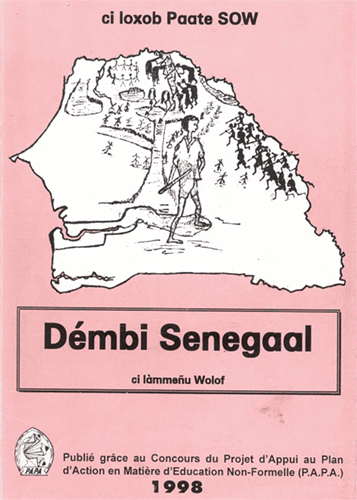24 Wolof

Wolof is the most widely spoken African language in Senegal, predominantly in urban areas. It is also spoken in the West African nations of Mauritania and The Gambia. Within Senegal, approximately 40% of the total population (just over 15 million according to World Bank estimates) are native speakers while the majority of the rest speak it as a second language. In Mauritania, Wolof is spoken by approximately 7% of the total population (estimated at just over 4 million by the World Bank), though the majority of speakers reside in the southernmost part of the country nearest the border with Senegal. About 3% of the total population of The Gambia (estimated at just over 2 million according to the World Bank) speak Wolof but it tends to be disproportionately influential in the country because of its prevalence in Banjul, Gambia’s largest city. Wolof is part of the Senegambia branch of the of the Niger-Congo language family, of which there are some 1,500 other languages.
Démbi Senegaal: ci làmmeñu Wolof is an account of the history of Senegal from antiquity through the end of the 19th century. By retracing these historical events, Paate Sow’s intent is to inform Wolof readers about the unique histories — political, economic, social — of the kingdoms (Jolof, Kajor, Waalao, etc.) that makeup what is today known as Senegal. Though not as culturally significant in the same way as say, Mariama Bâ’s Une si longue lettre, Paate Sow’s Démbi Senegaal: ci làmmeñu Wolof is a rare example of a title published in Wolof and available electronically. Finding titles that met this criteria — published in Wolof while also electronically available — was exceedingly difficult for all African languages represented in this exhibit. Thanks to projects like Céytu, which aims to publish — both in print and electronic form — the major works of literature from the Francophone world in Wolof, finding electronic versions of important works in African languages should be easier.
Wolof was offered for nearly a quarter century to students who could take elementary to advanced-level Wolof under the direction of instructor Alassane Paap Sow. He taught Wolof at UCB for over 20 years, and also developed material in Wolof through the Lumière Library of Film and Clips, a tagged, structured collection of clips from films and searchable database. Additionally, the Center for African Studies pioneered distance learning in the UC system by offering courses in Wolof, as well as Swahili. Wolof has not been offered at UC Berkeley since 2015 due to lack of funding.
Contribution by Adam Clemons
Librarian for African and African American Studies, Doe Library
Author: Paate Sow
Imprint: Dakar : Info-edit, 1998.
Edition: 1st edition
Language: Wolof
Language Family: Niger-Congo
Source: ALMA Project (African Language Materials Archive Project) of WARC (West African Research Center)
URL: http://www.dlir.org/docs/alma_ebooks/wolof_009.pdf

